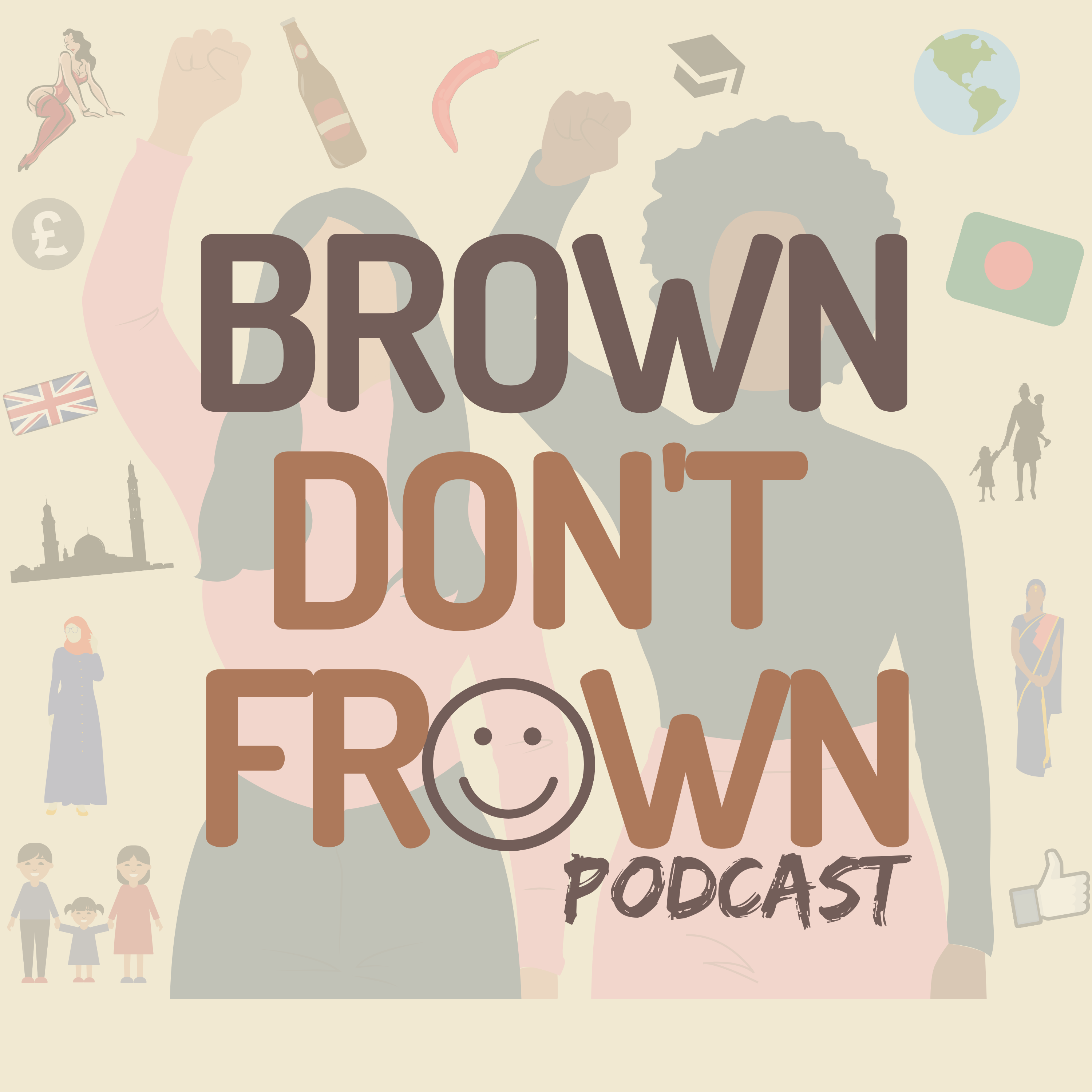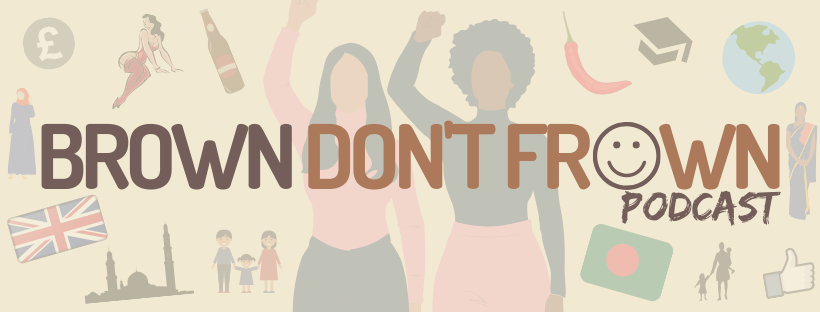
Brown Don't Frown was borne out of a personal journey with womanhood. As a British Bangladeshi, navigating mainstream Feminism often felt exclusionary to me because it didn’t seem to value the experiences or views which shaped my grandmother’s, aunts’, mother’s or friends’ lives. Through this podcast, we seek to build a more inclusive discourse, which breaks down presumptions about different cultures, and shines a positive light on the stories of underrepresented women. Featuring new guest(s) from different walks of life in each episode, Brown Don’t Frown seeks to engage ordinary women and facilitate openness towards entirely new perspectives. It hopes to spark honest and meaningful conversations about intersectional feminist themes in contemporary society with the acknowledgement that our views are shaped by our cultural, racial, religious, social and political experiences. Whether it's discussing society's preconceptions about the Hijab with a British-born Jamaican Muslim woman or examining the impact of gendered expectations on our ability to grieve on our own terms, we hope listeners finish each episode feeling more rounded than they did before. Follow us on: Instagram: https://www.instagram.com/browndontfrownpodcast/ Twitter: https://twitter.com/bdfpodcast?lang=en Facebook: https://www.facebook.com/browndontfrownpodcast LinkedIn: https://www.linkedin.com/company/browndontfrownpodcast
Episodes

Sunday Jul 12, 2020
Sunday Jul 12, 2020
Shirin Shah and Sheetal Mistry of South Asian Sisters Speak join me to review Netflix’s ‘Never Have I ever’. What initially emerges as trivial teenage satire quickly becomes a bastion of embracing imperfection.
We talk about the raw portrayal of miscommunication, resentment and high expectations which so often define South Asian mother-daughter relationships. We explore the struggle between tradition, familial expectations and individuality through Kamala’s decision to choose an arranged marriage over her boyfriend. We also discuss the South Asian diaspora’s interrelationship with its various cultures and faiths, and consider the example of the divorcee who was shunned for marrying a Muslim. We discuss whether this type of “infighting” accurately represents the relationship between Hindus and Muslims today.
While representation is about personal experience, we felt there were several missed opportunities which could have challenged these anti-Muslim and arranged marriage stereotypes instead of vindicating them.
Finally, we talk about the side-effects of grief: anger and trauma. Through these themes, ‘Never Have I Ever’ shows us that protagonists can be flawed. They are human, after all.

No comments yet. Be the first to say something!